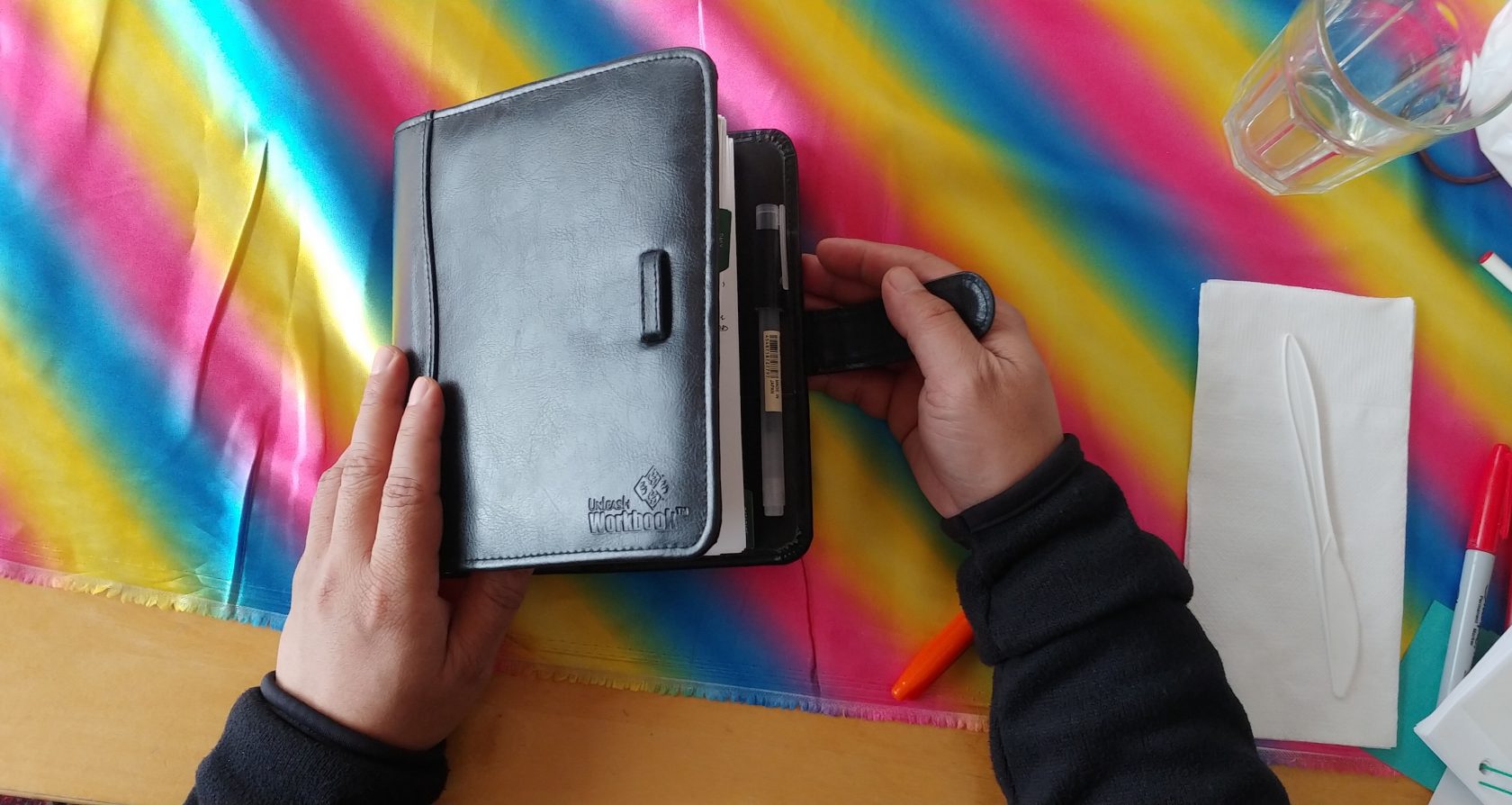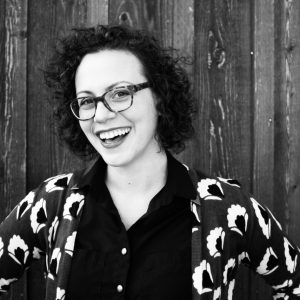Categories
Our collective focus? Finding novel ways to address newcomers’ emotional experiences. As we’ve explored the feeling scape, we’ve noticed a shift in the way our own team thinks about and discusses emotions. It turns out the research has permeated our professional and personal lives and made us all more emotionally literate. Perhaps it’s no surprise. We spent most of February and March zooming into people’s emotional journeys to pinpoint events and feelings. Even though we’re all coming from various privileges and backgrounds, emotions cut across boundaries, and the stories we’ve heard have resonated with us profoundly.
For NYCH crew member Rommel, excavating emotions has been deeply personal. The ethnographies have allowed him to “unmute” his story, and find new ways to process the challenges he has also faced as a newcomer. He’s lived the story side, and now he’s on the research and design side.
In Rommel’s words …
Bente dollars
What is the value of 20 dollars, “bente” dollars in my language, Tagalog? How long would it last ? What would you do if you already lost everything… no home? No job? And the only person who knows you… that you can rely on…has betrayed you? The only thing you have is the 20 dollars in your pocket…
There was a time that I felt I’m worth just that… Bente. My wife who I joined in Canada told me I was useless, worthless… ‘cause after 30 days in Canada I still didn’t have a job. I just needed a few more days – I had an upcoming interview.
I missed back home in the Philippines. There, I was somebody…I had my own home, a decent job, a Master’s degree in Community Development, and family support.
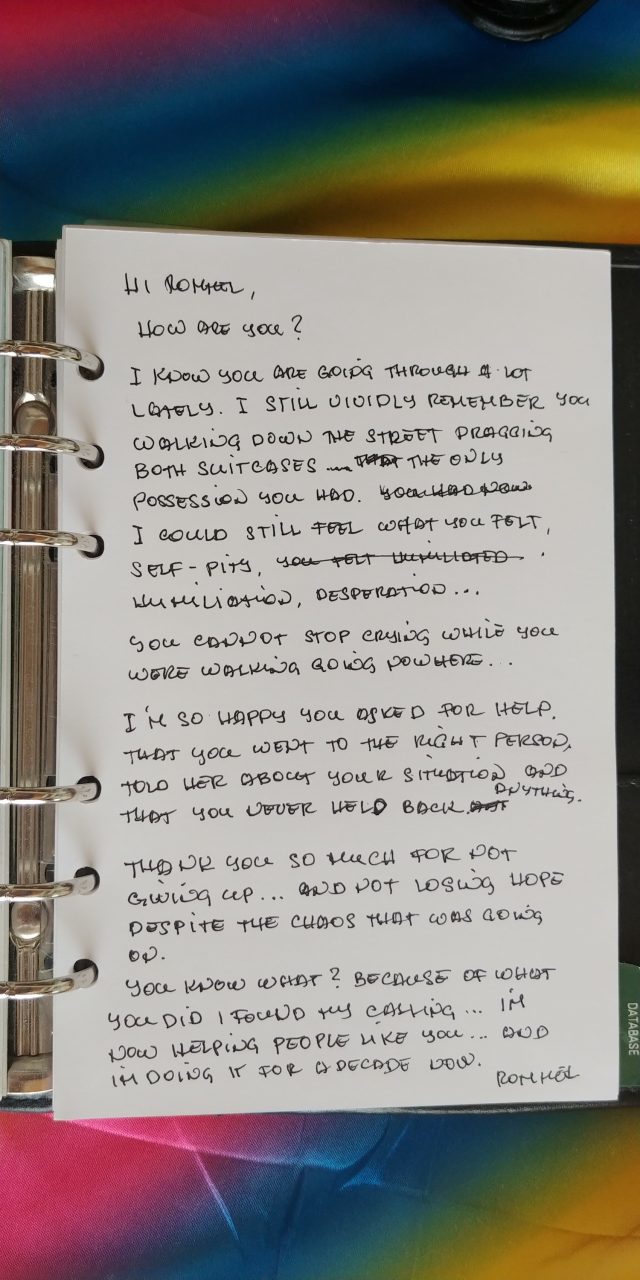
I still remember the morning after one of our biggest fights… I had to sleep in the basement on a carpet without a pillow or blanket. She threatened me with deportation because I still didn’t have a job. She called my parents and complained that I was wasting my time attending useless job search workshops, talking to settlement counsellors, applying for ESL classes… instead of working in a factory. I never wanted to work in a factory, but I couldn’t argue with that. I didn’t really know how the Canadian system worked.
That night, I wished everything was just a dream…or rather a nightmare. That the pain of humiliation, my sense of worthlessness, the feeling of isolation would all just go away after I cried myself to sleep.
She left me a note. All I could remember was this: “Lumayas ka na dito, ang kapal ng pagmumukha mo, ayaw na kitang makita pagbalik ko.” (Get out of here, you are shameless, I don’t want to see you anymore when I come back).
I took my half-packed luggage, dumped all my clothes in, and left.
I didn’t know anyone: no friends, no family, not even distant relatives. I didn’t have any idea where to go. I just walked and cried… I only had $20 in my pocket…
The settlement agency that she told me was a waste of time were the ones who housed me, fed me, consoled me, saw my value and took a chance on me…
I’m proud of what I have become. I have been helping immigrants as a settlement worker for more than a decade now, helping them to realize their worth. I know my true value, and I’m happy to say…
It’s not just bente dollars.
Fast forward to 2019
After working for 10 years at the same settlement organization that helped him as a newcomer, Rommel joined North York Community House (NYCH) in October 2018 as a school settlement worker. That’s where he found the opportunity to be involved with NYCH’s IRCC-funded research and design project that partners with InWithForward, bringing personal and professional experience to the team.
Rommel’s background in community development had been on his mind throughout the years working in settlement. He had always dreamed of doing work like this, sharing, “I’ve always wondered about researching the people we work with, because maybe the programs we run now could be more relevant and responsive to their needs.”
We spent the past month bringing together all the information we’ve collected until this point: longer ethnographies with people, international case studies of innovative practice, inspiration and gaps from services we’ve shadowed, and academic literature alongside expert interviews.
Instead of letting this information sit in documents, we designed it into life via a board game called Elevate. The aim of the game is to ideate solutions that address various missions based on the real-life issues and pain points newcomers shared.
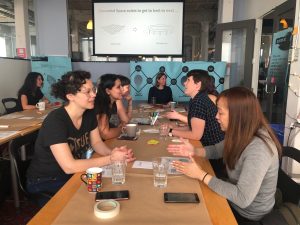
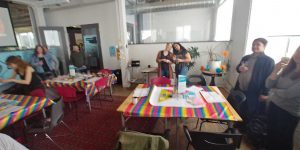
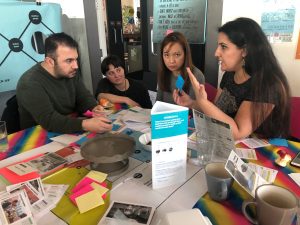
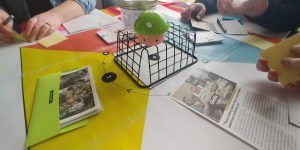
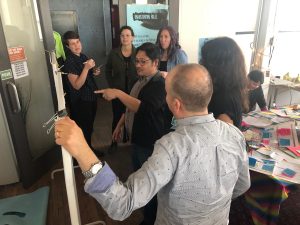
On the third Friday in March, after a month of game development, we played it in our respective cities and teams, tweaking the design and rules as we went along. One plane ride later, the West coast team joined everyone in Toronto to meet in person and play the game on Monday. It was a day spent playing the full game, from start to finish, and making sense of everything we’ve learned. Game day allowed us to come up with ideas that address the mission, are novel, and are believable. After brainstorming, we put our ideas through another sieve to elevate them, asking: do they look to the future? Do they spark change? Do they embody humanistic values?
We came together and debated how to rank our ideas, the top spot being for the idea with the biggest shift in how things are done now to how things could be. After picking the top three ideas, teams re-oriented, fleshed out some details of the idea, and did a short role play to demonstrate how people from our ethnographies could use and benefit from the idea.
Rommel’s favourite part of the game is that it offers a method for generating new and different ideas. He enjoys “giving birth to themed seed ideas.” Luckily, over April, Rommel and the rest of the team will have more time to play the game. We’ll be ideating to address all 13 missions, all so we can have heaps of idea to filter down for the next phase: prototyping!
